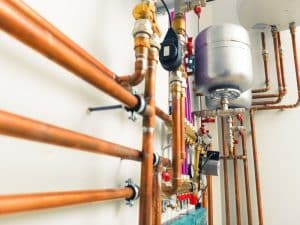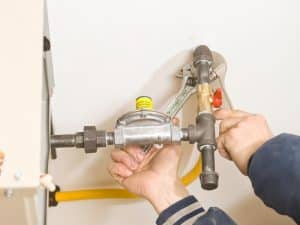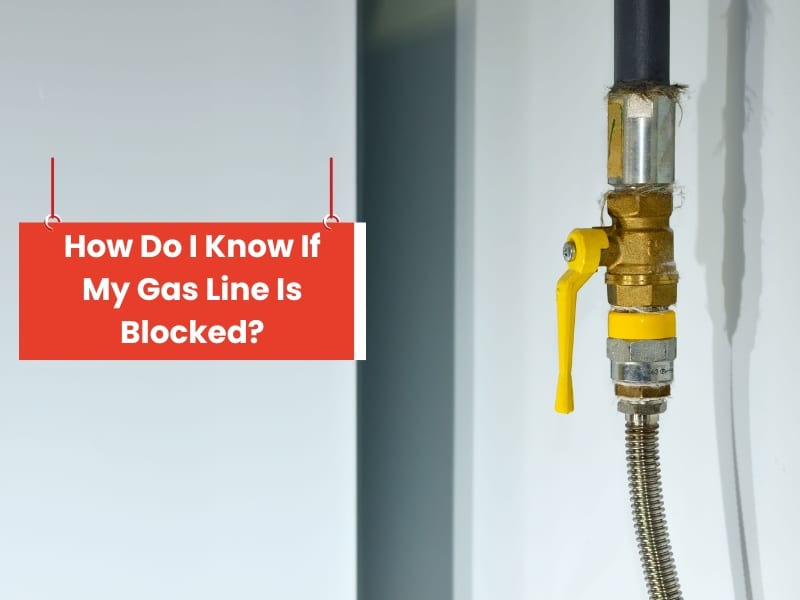A gas line blockage can cause significant issues in your home or business, mainly if you rely on gas appliances like heaters, stoves, or hot water systems. Understanding how to spot a blockage and knowing the proper steps is crucial to ensuring your gas systems run safely and efficiently. This guide will explore the common signs of a blocked gas line, what to do when you suspect one, and how regular maintenance can help prevent future blockages.
What are the common signs of a blocked gas line?
Recognising the early signs of a blocked gas line can prevent expensive repairs and safety risks. If you notice weak or no gas flow, your appliances may not function properly. Instead of a blue flame, a flickering or yellow flame on your gas burner could signal a blockage. A pungent gas odour near appliances may indicate a leak or blockage causing pressure issues. Hissing or whistling sounds around your gas lines could indicate a blockage or leak. If your gas heater isn’t working consistently or shuts off unexpectedly, a blocked gas line could be the cause. Immediate action is essential.
How does a blocked gas line affect gas heaters and appliances?
A blocked gas line can severely affect the performance of your gas-powered appliances. Here’s how:
- Gas heaters: If the gas flow is restricted, your heater may not get enough fuel, causing it to malfunction or fail.
- Stoves and ovens: A blocked line can result in poor flame control, affecting cooking efficiency and potentially cause safety concerns.
- Water heaters: Gas-powered water heaters may stop heating water properly, leaving you with cold showers or an inadequate hot water supply.
- Fireplaces: A blocked gas line could make starting or maintaining a fire difficult, reducing heating efficiency.
- Dryers: Gas dryers may need to be fixed, leading to increased drying times and wasted energy.
Why does your gas line get blocked, and can it be prevented?
Gas lines can become blocked for several reasons, including:
- Debris and dirt: Accumulating dirt and dust, especially with poor maintenance.
- Corrosion: Rust in older pipes restricts gas flow.
- Improper installation: Poorly installed or maintained lines can clog easily.
- Tree roots: Roots from nearby trees can invade outdoor gas lines.
- Wear and tear: Gas lines naturally degrade over time, leading to blockages or leaks.
Preventing issues like repairing a leaky gas line is safer and more cost-effective than handling emergencies. Regular maintenance and inspections by a licensed professional are essential.

What should you do if you suspect a gas line blockage?
Suppose you suspect that your gas line is blocked. Taking immediate action is crucial to prevent further damage or safety risks. Follow these steps:
- Turn Off gas appliances: Prevent pressure build-up by shutting off all gas appliances.
- Check for leaks: If you smell gas, open windows and avoid sparks (don’t use electrical devices).
- Contact a professional: Call a licensed gas plumber for inspection and repair.
- Do not attempt repairs: Gas line repairs are dangerous and should be handled by a professional.
How can regular gas line inspections prevent blockages?
Preventive maintenance is the best way to avoid costly repairs and ensure your gas lines remain clear and safe. Here’s how regular inspections help:
- Early detection: Identify issues before they become blockages. During inspections, professionals check for leaks, blockages, and signs that your gas connector needs replacing to ensure your system operates safely.
- Clearing debris: Remove dirt or debris to prevent build-up.
- Pressure testing: Check gas pressure to detect flow restrictions.
- Corrosion prevention: Spot corrosion to prevent future blockages.
- Safety checks: Ensure appliances work safely and efficiently.
Is your gas heater at risk due to a gas line blockage?
Yes, a blocked gas line can put your gas heater at risk. Here’s how:
- Inconsistent heating: Blockages can lead to inconsistent gas heater temperature and erratic performance in your gas heater, making it challenging to maintain a comfortable temperature.
- Higher energy bills: Blocked lines reduce efficiency, increasing gas consumption and utility costs.
- Complete heater failure: A blocked gas line may prevent the heater from working, leaving you without heat.
- Safety concerns: Blockage malfunctions can lead to risks like carbon monoxide build-up or fire hazards.
What steps should you take to address obstructed gas lines safely?
If you’ve confirmed a blocked gas line, follow these essential steps to address the issue safely:
- Shut off the gas supply: Turn off the gas to prevent further issues.
- Call a licensed professional: A licensed gas plumber has the training and equipment to clear blockages and repair any damage safely.
- Do not use gas appliances: Avoid using gas-powered appliances until resolved.
- Follow safety protocols: Ensure ventilation and avoid sparks until a professional inspects the area.

When Is contacting a professional for gas line issues essential?
It’s always best to contact a professional if you suspect any gas line issues, especially in the following cases:
- Smell gas: It’s an emergency; never try to fix it yourself.
- Inconsistent heating: A malfunctioning heater may indicate a blocked line.
- Severe blockage: Complex or deep blockages require professional tools and expertise.
- Uncertainty: If unsure, always consult a licensed gas fitter for advice.
How can seasonal maintenance help prevent obstructed gas lines?
Seasonal maintenance is an essential step in preventing gas line blockages. Here’s how maintaining your system throughout the year can help:
- Winter: Inspect gas heaters and lines before the cold to avoid heating issues.
- Spring: Check for damage or blockages from winter.
- Summer: Ensure lines are clear for optimal performance of BBQs, water heaters, and AC units.
- Autumn: Prepare your gas systems for winter with a maintenance check to prevent blockages. Regular checks throughout the year ensure efficiency and safety for your gas appliances.
Preventing obstructed gas lines for safety and efficiency
Gas line blockages can cause serious issues, impacting appliance performance and safety. Early detection and swift action are crucial to avoid costly repairs and potential dangers. Regular maintenance and professional inspections, including gas line blockage repair, keep your gas systems efficient, safe, and reliable. Proactive measures and timely solutions protect your home or business, ensuring the smooth operation of gas appliances.
Apex Gas Heater Service is your 24/7 emergency gas plumbing solution in Australia. Our skilled team specialises in advanced plumbing and gas services, responding swiftly to urgent issues. Need a new water heater installed or expert plumbing help? We’ve got you covered. With years of experience and a commitment to precision, our licensed professionals deliver efficient solutions. Contact Apex Gas Heater Service today for all your plumbing and gas emergencies backed by top-tier expertise.

